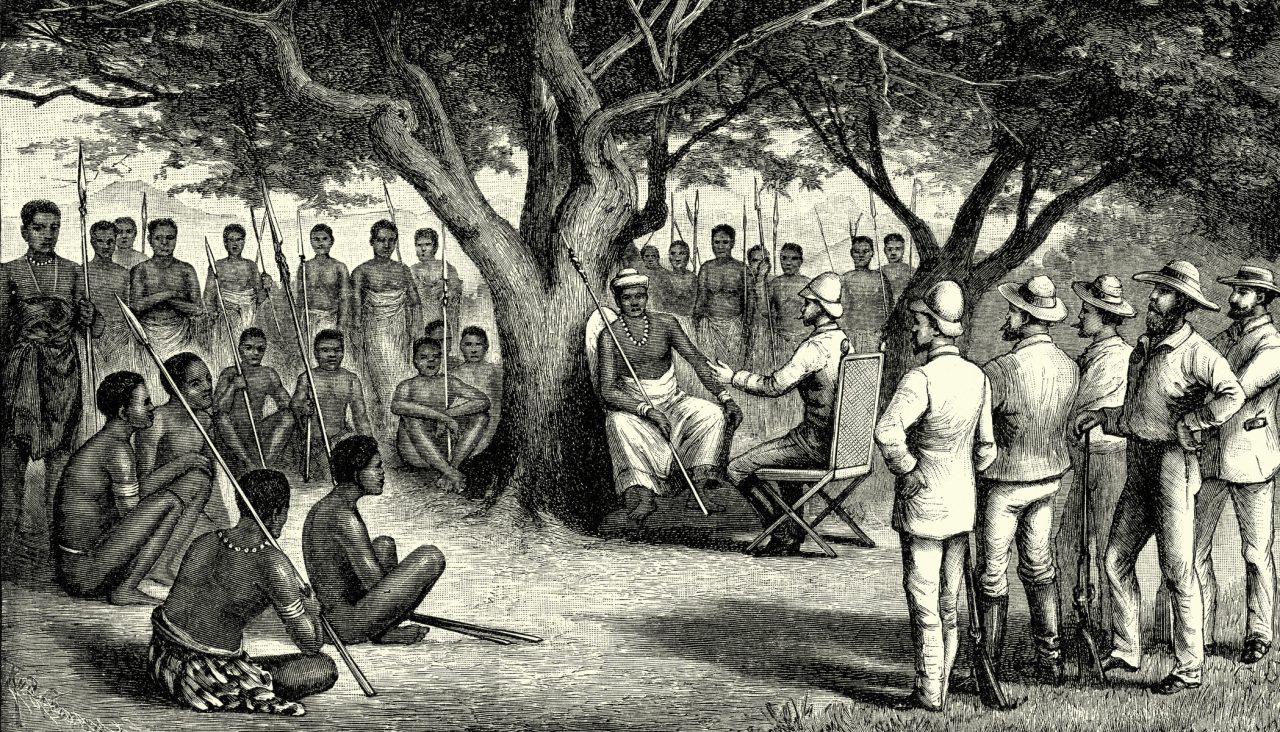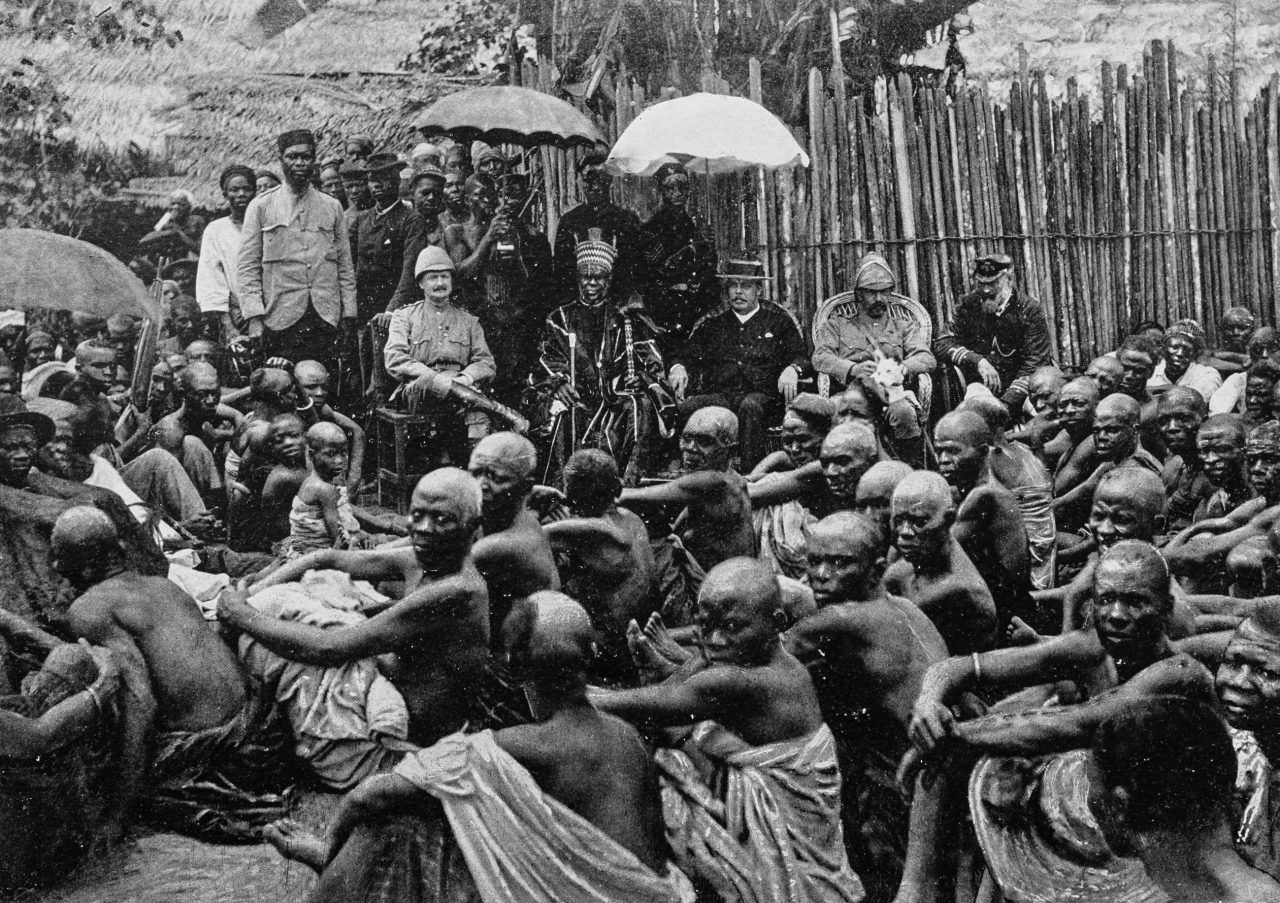Europeans and colonialism
Around 1,000 BC, colonies were formed around the Mediterranean. This happened because Greek cities wanted to gain income through trade. The Roman Empire colonised large areas of land and people when they expanded their empire. The Vikings also established colonies in Ireland and elsewhere. From the 16th century, large-scale European colonialism outside Europe began.

Illustrasjon fra 1800-tallet av et møte i Kongo mellom Europere og Afrikansk urfolk

Antique photograph of the British Empire: Annexation of the territory of the king of Ado
Ønsker du å lese hele artikkelen?
Ved å logge inn får du full tilgang til artikkelen, samt Lærerrommet med engasjerende læringsstier og oppgaver du kan bruke i undervisningen.
Ønsker du å prøve ut fullversjonen av Skolerom?
Kontakt oss her!


